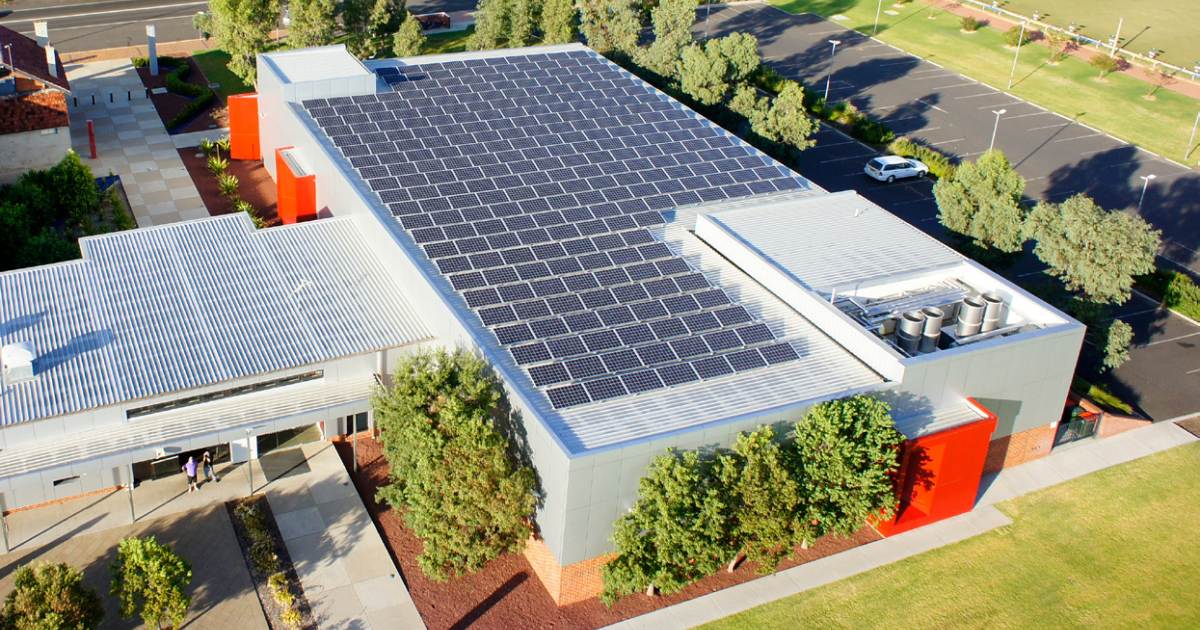
Dozens of mayors and councillors from across Australia have put their names to a joint statement committing to economic recovery solutions that not only create jobs, but also tackle climate change.
Last week we mentioned UN Secretary-General António Guterres was urging members of the Coalition of Finance Ministers for Climate Action to strive for a “green” COVID-19 recovery. In September, OECD Secretary-General Angel Gurría expressed concern by the level of “non-green” stimulus spending – including fossil fuel investments – in some countries.
Here in Australia, local governments have been a driving force in uptake of renewables including solar power. Every week there’s news of councils doing great things on the solar energy scene that not only help slash emissions, but also their electricity costs.
Australian councils may also prove to be a powerful force in a green COVID economic recovery.
The joint statement signed by mayors, deputy mayors and councillors from 41 LGAs lists eight solutions that can put local governments on a practical, jobs-rich trajectory while also addressing climate change.
Summarised:
- Drive renewable energy and storage within councils and communities.
- Accelerate and advocate for sustainable transport.
- Roll out energy efficiency measures within council and the community.
- Increase revegetation and urban greening, along with ecosystem restoration.
- Integrate circular economy principles.
- Support local businesses in uptake of renewable energy, energy efficiency upgrades and provide waste management support.
- Educate communities in the importance and benefits of a sustainable and resilient economic recovery.
- Prioritise local businesses, skills and suppliers in existing and new projects; while ensuring sustainability is at the core of council purchasing.
“The actions we take now must improve liveability for everyone, including the most vulnerable members of society, and make communities more resilient and sustainable,” says the statement.
The statement and list of signatories can be viewed here.
Councils Taking Climate Change Seriously
While 41 signatories accompany the statement, there are 537 councils in Australia – so some may view this “minority” as nothing more than that. But many local governments are understanding the risks associated with climate change in terms of the impact it will have on their communities and the opportunities associated with addressing them.
At the time of publishing, 96 Australian local governments had made climate emergency declarations according to ICEF. These governments cover a total of more than 8.6 million Australians – so close to 35% of this country’s population. The number of councils to make a declaration has grown rapidly in the last year or so. In August 2019 we mentioned at that point 42 had made declarations, covering just under 15% of Australia’s population.
Climate emergency declarations not only recognise climate change as a clear and present danger, but also often contain commitments on action that will be taken at a local government level.

 RSS - Posts
RSS - Posts



The post includes:
“While 41 signatories accompany the statement, there are 537 councils in Australia – so some may view this “minority” as nothing more than that.”
Some movements build quickly – before you know it, it’s a global phenomena – like Greta Thunberg’s school strike for climate movement that began in Aug 2018, although as Greta admits, it still hasn’t translated into effective action.
See: https://theconversation.com/fridays-for-future-how-the-young-climate-movement-has-grown-since-greta-thunbergs-lone-protest-144781
We/humanity are on the clock, and time is running out to act effectively.
See my comment at: https://www.solarquotes.com.au/blog/guterres-fossil-fuels-mb1720/#comment-831792
In recent days I’ve found a YouTube video titled “Will Steffen – Climate Change 2020 – Why we are facing an emergency – April 2020” published by Renew on Apr 23, duration 1:02:48 – see below.
From time interval 0:18:21 through to 0:24:26, Earth System scientist Professor Will Steffen talks about potential ‘tipping points’ that could drive the Earth climate to a “Hothouse” state beyond human adaptation and control.
From time interval 0:37:51, Steffen outlines “A COVID-19 type Response to Climate Change: Flattening the Curve”:
* 2020: No new fossil fuel developments of any kind (coal, gas, oil);
* 2030: 50% reduction in GHG emissions; 100% renewable energy;
* 2040: Reach net-zero GHG emissions.
The latest climate science says net zero GHG emissions by 2050 is TOO LATE.
From time interval 0:52:54 to 0:54:17, there’s a discussion about what people can do to help.